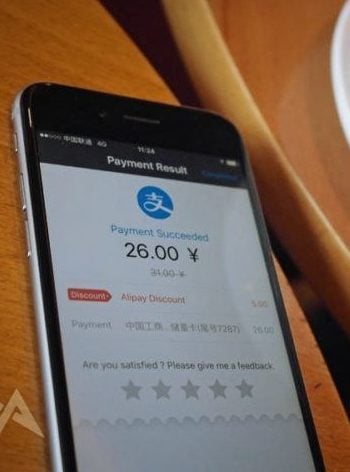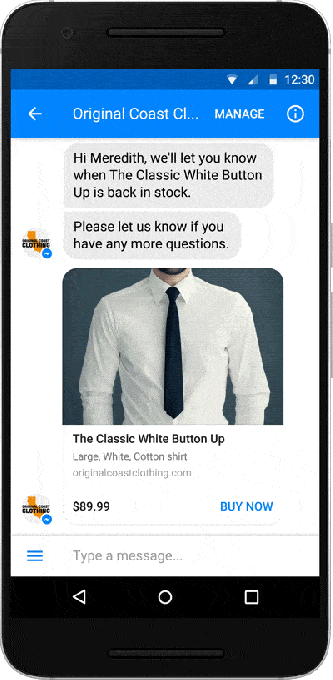Find out the week’s top mobile stories from around the world.
This week.. UK phone use while driving at ‘epidemic proportions’, email revenue up 32% on mobile, Indian government asks major players to add AAdhaar encryption to all phones and much more.

Mobile phone use at the wheel has reached ‘epidemic proportions’ says road charity RAC
International Business Times
The number of people who use mobile phones behind the wheel in Britain has quadrupled over the last two years because drivers have no fear they will be caught, new research has revealed.
The study by motoring charity the RAC found the number of drivers who admitted to using a handheld mobile phone while driving increased to 31 per cent, compared with 8 per cent in 2014.
The figures also show that 20 per cent of drivers think it is acceptable to check social media on their phone when in stationary traffic, compared to 14 per cent in 2014.
Read more…
Email-driven Revenue up 32 per cent on Mobile
Mobile Marketing Magazine
32 per cent of email-driven revenue came from a mobile device in Q2 2016, up 32 per cent year-on-year and 80 per cent from two years ago, according to new data from Yes Lifecycle Marketing.
Using data from its cross-channel marketing platform, Yes Lifecycle found that 42 per cent of all email-generated orders came from mobile devices in Q2 2016, up 26 per cent from last year, and over half of all email clicks are now coming from mobile devices.
Despite this growth, mobile click-to-open rates took a hit over the last year, dropping from 14.2 per cent to 12.1 per cent. The report attributed this to slowing adoption rates of responsive design, which make emails more readable and engaging on mobile, changes in image hosting and other external factors.
Read more…
India asks Apple, Google, Microsoft to add Aadhaar encryption on their phones
Mashable
After making it mandatory for all new mobile phones to have GPS and a panic button, India now wants inclusion of its homegrown authentication on all smartphones running Android, iOS and other operating systems in the country.
The Indian government has held talks with major players including Google, Samsung and Microsoft for adding its biometric authentication system, Aadhaar (which means foundation in Hindi), to their respective mobile operating systems, Bloomberg reports.
“Visa Commerce Network works by connecting transactions between two merchants,” Visa says. “For example, a hotel can provide its customers with offers from local restaurants using Visa Commerce Network and, with cardholder consent, track engagement and even issue rewards. Qualifying purchases are recognised at the point of sale and rewards can be seamlessly applied to cardholder accounts.”
Read more…
Users pi**ed as Alipay starts charging for money transfers
Tech in Asia
Well, it couldn’t last forever.
Almost exactly a year after Tencent made a similar move with WeChat Pay, Alibaba’s Alipay has announced that beginning in October, the service will charge a 0.1 percent fee for transfers from Alipay to personal bank accounts.
Alipay is used as a mobile wallet app by hundreds of millions of people in China.
The new fee won’t apply to all transfers – there’s an exception for transfers whose “accumulated sum” is under US$3,000, but once users exceed that number, all future transfers to an account will be subject to the fees
Read more…
Amazon’s simple answer to the smartphone
FT
Necessity is the mother of invention and you must make the best of what you have. Amazon has achieved this with the Echo, an internet-connected speaker and digital assistant that rests on the kitchen counter of the family home: helpful, discreet, intelligent and simple.
Amazon is not the first company that springs to mind as a pioneer of consumer devices; that would be Apple, inventor of the iPhone and the iPad, the tablet that Amazon failed to match with its unpopular Fire Phone. The Kindle ebook reader dominates its niche but it has been around for nine years. Yet the Echo, launched in the UK and Germany on Wednesday, has found a role that Apple and Google overlooked.
Read more…
Refugees see mobile connectivity as critical lifeline – new UN report
UN News Centre
Many refugees view access to a mobile phone and the Internet as being as critical to their safety and security as food, water and shelter, according to a new report out today from the United Nations refugee agency and a technology consulting company.
“In the world we live in today, Internet connectivity and smart phones can become a lifeline for refugees, providing an essential means for them to give and receive vital information, communicate with separated family members, gain access to essential services, and reconnect to the local, national and global communities around them,” the UN High Commissioner for Refugees, Filippo Grandi, said in a news release.
“Most importantly, connectivity can help broaden the opportunities for refugees to improve their own lives and pursue a vision of a future that would otherwise be denied to them,” he added.
Read more…
Long-term effectiveness of mobile, internet health interventions remain uncertain
Cardiovascular Business
As technology advances at a fast rate, companies are searching for ways to use mobile and internet applications to improve peoples’ health and help them become more active. So far, some of the interventions have been successful, although more research is needed to determine whether the outcomes are sustainable in the long-term.
Researchers recently conducted a systematic review of studies that evaluated the effect of internet, mobile phone, personal sensors or stand-alone computer software on diet, physical activity, adiposity and tobacco and alcohol use.
Read more…
Mobile commerce at tipping point of surpassing desktop as global path to purchase
Internet Retailing
Mobile is about to surpass desktop as the global path to e-commerce, with the UK and Japan leading the way.
So finds the performance marketing technology company Criteo in its H1 2016 State of Mobile Commerce Report, which reveals insights into consumer shopping habits and forecasts predictions for mobile commerce across the globe.
“Mobile commerce has reached a turning point and is surpassing desktop purchasing as retailers continue to evolve their mobile shopping platforms,” says Elie Kanaan, EVP, Marketing, Criteo.
Read more…
Visa is taking on the world’s largest mobile money platform on its home turf
Quartz
Visa, the world’s largest payments network, is taking on the world’s largest mobile money platform, M-Pesa, in its home country. The credit card company has launched its Mvisa app that allows users to make purchases or transfer money on their cellphones in Kenya.
Visa admits that one reason for entering the mobile money market is because its hasn’t had much success promoting its traditional credit cards in the largest economy in East Africa.
“One of the reasons is we haven’t had as many cards as we’d like,” Andrew Torre, head of Visa for Sub-saharan Africa, told Bloomberg, “the other reason is we haven’t been able to engage the hundreds millions of merchants where people shop.”
Read more…
Facebook Messenger now allows payments in its 30,000 chat bots
Tech Crunch
Facebook today filled the biggest hole in its chatbot platform. Messenger bots can accept payments natively without sending users to an external website, Facebook’s head of Messenger David Marcus announced today onstage at TechCrunch Disrupt SF 2016.
Finally, the credit card info people already have stored in Facebook or Messenger can be used to instantly make purchases in bots that are part of the new closed beta the developers can apply for. Marcus also revealed that 34,000 devs have joined the platform and built 30,000 bots in the April launch, up from over 10,000 devs in May and 11,000 bots in July.
To support payments in Messenger, Marcus says that the company is working with all the major players in the industry including Stripe, PayPal, Braintree, Visa, MasterCard and American Express — not just Stripe and PayPal which the Facebookdeveloper blog post mentioned.
During the talk, Marcus discussed Messenger’s rise to 1 billion users thanks to a forced migration from Facebook’s main app, his relationship with Mark Zuckerberg, and the early stumbles with chatbots that have been used by millions of people across 200 countries.














